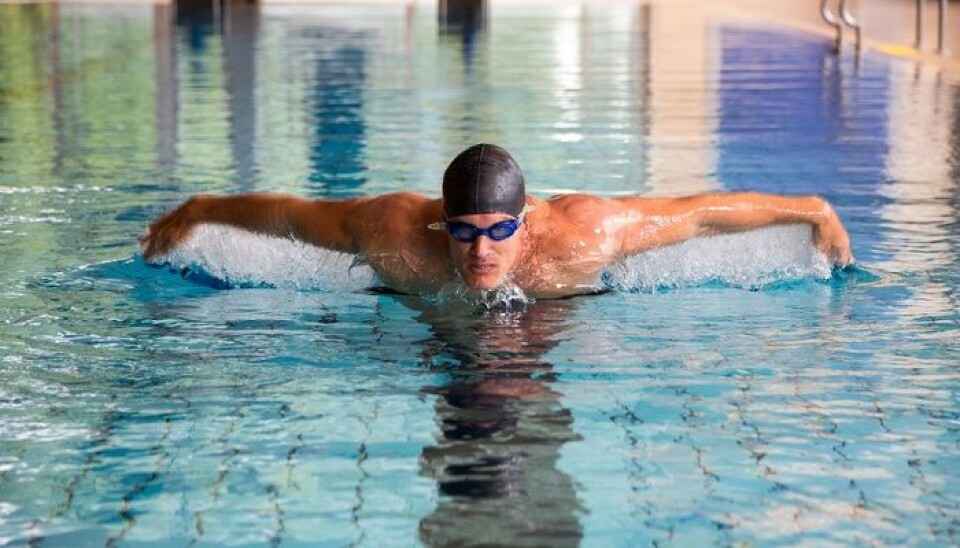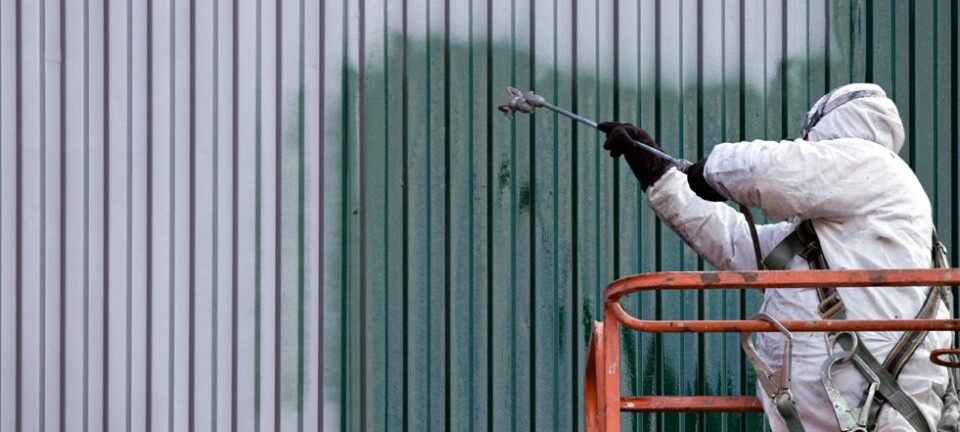
Swimming pool hall air can trigger asthma in elite swimmers
Although professional swimmers lead healthier lives than the average population, they have almost twice the prevalence of asthma symptoms. The air in indoor swimming pools may explain this paradox.
The countless hours of practice required to become an elite swimmer may not only result in improved technique and increased muscle mass.
A new Swedish study indicates that all this time spent in swimming pool halls is also associated with an increased risk of asthma.
This conclusion was first published in 2012, and now one of the authors of the study has defended a doctoral thesis in which she compares the prevalence of asthma symptoms in elite swimmers with various other groups of people.
The new conclusion is clear:
When the swimming pool water is purified with chlorine, a reaction occurs between the chlorine and the organic materials in the water, such as urine. One of the compounds created by this reaction is trichloramine, which has a harmful effect on the mucous membrane of the respiratory tract. This may be one of the causes of the increased prevalence of asthma we’re seeing in elite swimmers.
Although elite swimmers live healthier lives than people who do not engage in elite sports, they have almost twice the prevalence of asthma diagnoses or asthma-like symptoms. The swimmers also report symptoms outside of the swimming pool such as nocturnal coughs and wheezing.
Greater risk for elite swimmers than for other elite athletes
Previous research has shown that all athletes have an increased risk of asthma, regardless of the type of sport. However, there are many indications that it is not just the strenuous training that leads to the increased prevalence of asthma diagnoses and symptoms.
The new study also compared elite swimmers with elite tennis players. While 16-17 percent of people who do not engage in elite sports have an asthma diagnosis, the figure for elite swimmers is 37 percent, whereas for elite tennis players it is only 25 percent.
The explanation for this may be that swimmers are exposed to high levels of trichloramine in swimming pool halls:
“When the swimming pool water is purified with chlorine, a reaction occurs between the chlorine and the organic materials in the water, such as urine,” says the author of the new study, Kerstin Romberg of the Department of Respiratory Medicine and Allergology at Lund University, Sweden.
“One of the compounds created by this reaction is trichloramine, which has a harmful effect on the mucous membrane of the respiratory tract. This may be one of the causes of the increased prevalence of asthma we’re seeing in elite swimmers.”
Hyperventilation increases exposure
Romberg is keen to point out that her conclusions should not be taken as a sign for parents to stop their children from taking their weekly swimming lessons. It is only over extended periods of exposure that this becomes a problem.
She explains that swimmers do not get acute asthma unless the levels of trichloramine exceed 500 micrograms per cubic metre, and the Swedish swimming pool halls featured in the study had only around 300 micrograms per cubic metre.
For elite swimmers, however, things are different as they are exposed to the substance over longer periods:
“The swimmers I studied had an average weekly training schedule of 18 hours, and they hyperventilate most of the time they are in the pool. They also spend a significant amount of time at the side of the pool where they for instance do their homework, so they spend a lot of time in swimming pool halls,” says Romberg.
“Whereas at rest one may breathe about six litres of oxygen per minute, elite swimmers may breathe up to 200 litres of oxygen per minute over shorter periods. This obviously leads to a much greater exposure.”
----------------
Read the Danish version of this article at videnskab.dk
Scientific links
- "Asthma is more prevalent in elite swimming adolescents despite better mental and physical health", Scandinavian Journal of Medicine & Science in Sports (2012), DOI: 10.1111/j.1600-0838.2010.01177.x
- "Every breath you take every move you make", Studies on Asthma and Sports in Adolescent Athletes. Doktorafhandling (2013)


















